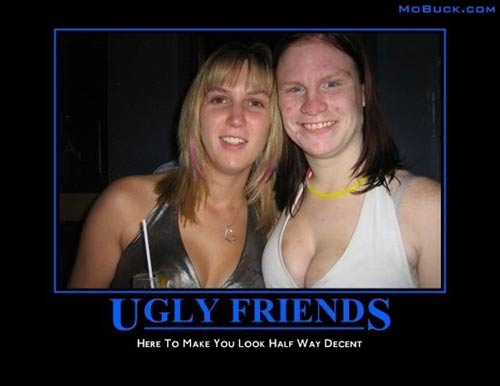|
 The majority of women posting the photos said they did so after falling out with their friends, while nearly a third said they were taking revenge on people who had done the same to them. |
|
THE MAJORITY of women posting the photos said they did so after falling out with their friends, while nearly a third said they were taking revenge on people who had done the same to them. Two fifths of women also admitted deliberately posting photographs of their friends without make-up. Even when asked to permanently delete the unflattering picture from Facebook, a fifth of women said they had refused to do so. The survey of 1,500 women aged over 18 by Mymemory.com, a photo gift website, adds to growing evidence that people use Facebook to embarrass or humiliate their friends. While people can remove their names from pictures, they cannot delete the photograph. Facebook has refused to get involved in the disputes, saying that unless photos have broken the site’s terms and conditions, individual users must find the solution amongst themselves. Three quarters of women said they routinely "de-tagged" photos of themselves if they did not like the pictures, while two thirds polled said they would be "angry" with a friend for uploading unflattering pictures of themselves. Rebecca Huggler, co-founder of MyMemory.com, said: “The etiquette of tagging friends in photographs on social networking sites is a tricky one to master, and with so many pitfalls, we wanted to look into women’s relationships with the photographs they upload to the sites in question. "To see that so many women deliberately commit ‘photo sabotage’ and upload unflattering pictures of friends is somewhat surprising, particularly when you consider how many said they’d be mad if the same was done to them. “Photo sabotage is never kind, but I think we’ve all seen pictures on social networking sites that we know the ‘victim’ won’t be happy with. It’s always a good idea to check with your friends before uploading; they’ll thank you, and it could prevent some serious fallout.” Last month, psychologists at the University of Bath found that women are more attracted to social networking websites than men, who prefer gaming and gambling sites. The research, which looked at the differences between what the genders enjoyed doing online, discovered that men are more likely to visit entertainment, betting, games and music websites. However, women are more attracted to social networking sites such as Facebook and Twitter. (Read by Emily Cheng. Emily Cheng is a journalist at the China Daily Website.) (Agencies) |
多数上传朋友丑照的女性称她们是在和朋友闹翻后才这么做的,而有近三分之一的人说她们是以此报复那些上传自己丑照的人。 五分之二的女性还承认她们故意上传朋友的素颜照。甚至在朋友要求她们从Facebook上永久删除难看照片时,还是有五分之一的女性称她们拒绝删除。 照片礼品网站Mymemory.com开展的这项调查涵盖了年龄在18岁以上的1500名女性。在此前相关调查的基础上,这一调查再次显示人们会利用Facebook来羞辱他们的朋友或让朋友难堪。 尽管人们可以把他们的名字从照片上移除,但他们却无法删除这张照片。 Facebook拒绝被卷入这些争端当中,称除非照片违反了网站的条款,否则个人用户必须自己寻找解决途径。 四分之三的女性称她们平日里看到他人上传的自己的照片,如果不喜欢就会删除标签。另外有三分之二的被调查者称她们会因为朋友上传自己的丑照而生朋友的气。 MyMemory.com的共同创立者瑞贝卡•哈格勒说:“给社交网站上的朋友照片加标签,这其中的微妙礼节很难把握。正因为陷阱重重,我们想通过女性上传到网站的问题照片来看女性之间的关系。” “看到这么多女性故意实施‘照片暴行’,上传朋友的丑照,这有些让人吃惊,特别是考虑到有这么多人说如果别人也对自己做出同样的事会很生气。 “照片暴行从来不是什么好事,但我想大家都在社交网站上看过那种估计‘受害人’看到会不高兴的照片。先和朋友确认后再上传总是一个好主意,他们会感激你,而且这会避免一些严重的争吵。” 上个月,巴斯大学的心理学家发现社交网站对女性比对男性更有吸引力,而男性更喜欢游戏和赌博网站。 这项研究调查了男性和女性在网上喜欢做的事情的区别,发现男性更倾向于访问娱乐、赌博、游戏和音乐网站。 女性则更喜欢上Facebook和Twitter这样的社交网站。 相关阅读 (中国日报网英语点津 陈丹妮 编辑:Helen) |
|
Vocabulary: fall out with: 与……争吵,闹翻 sabotage: 破坏行为 |
